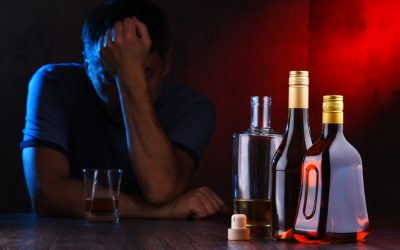Therapy may focus on identifying high-risk situations and learning ways to avoid them. It may also involve normalizing occasional thoughts and relapse, and learning methods to let go of them quickly. During this stage, a person may not be thinking about using drugs or alcohol, but their emotions may be placing them in jeopardy of relapse. According to a review of relapse prevention, lapse and relapse are particularly common within the first year of seeking treatment. Treatment for addiction can help clients work through a relapse and begin taking active steps to change their behavior. Whether you’re just beginning the recovery process or looking for ongoing care after detox, Mana Recovery is here to help.
Identify triggers and revisit your relapse prevention plan

They might want https://postula.vacantesdetrabajo.com.es/carrie-fisher-augusten-burroughs-leslie-jamison-15/ to see you for an appointment to talk through what you’re experiencing. Sadly, addiction is difficult to understand unless you are experiencing it yourself. But in most cases, people are relapsing because they have failed to address the root cause of their addiction and find an honest passion for life. We do not offer specific health advice, nor are we a remote clinical advice service (RCA). We can, with your consent, pass your details to our partners that can offer this. We receive a commission if you begin treatment with a fee-paying provider.

How to manage your thoughts
No single treatment works for everyone, but a combination of therapies tends to produce the best outcomes. Support groups, therapy, and engaging in structured activities can help reduce the sense of emotional numbness and begin to rebuild a sense of normalcy. Ultimately, whatever treatment is used must address the needs of the whole person in order to be successful. Slips are occasions when recovering addicts partake in a small amount of an illicit substance and then stop. If you have just relapsed, then you might feel angry at yourself, and as a result feel like you need to punish yourself in some way. However, punishing yourself is the worst thing you can do after a relapse.
Utilizing support networks
It will depend on how long the relapse lasted, how alcoholism symptoms intense it was (how much of a substance was consumed), and how you are feeling mentally after the relapse occurred. Recovery plans last years or even a lifetime, people are mistaken if they think they are ‘cured’ and stop using coping mechanisms or attending treatment. Professionals will work hard to help patients immediately stop their use following a relapse.
- Chronic relapse is a painful, devastating experience to go through, but there is effective treatment available.
- Learn to forgive yourself for relapsing and find self-love to try again.
Recognizing that these emotions are opportunities for growth is an important approach. Not only will this make you less likely to relapse it will ensure that you can push through these uncomfortable feelings and become stronger as a result. One of the best ways to prevent a stress-related relapse is to learn better coping mechanisms for managing stress. If one or more of them seems to i relapsed now what resonate with you then it could be worth looking into further.
